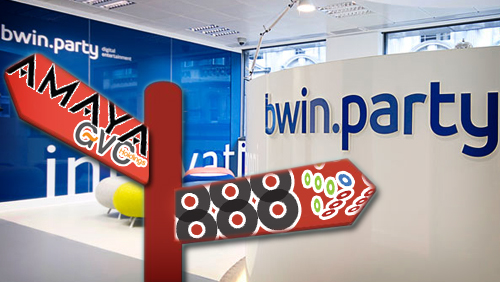With Bwin.party now at the center of a bidding war between 888 on one side, and Amaya / GVC on the other, the answer as to what is safer for shareholders long term is easy – 888 all the way. The Amaya / GVC route does have its advantages though and could see more success more quickly, but the way that Amaya and GVC seem to be setting up the offer puts a lot of unregulated eggs in one basket (GVC), and a lot of debt in the other (Amaya). The 888 route is the cleaner deal and has more geographical overlap and cross marketing synergies, though the question remains as to what 888 will do with Bwin.party’s unregulated grey market business.
The final price tag looks like it will be somewhere just below €2B. Some sources have €1.7B as the figure, CalvinAyre has €1.5, though in the end, since this is a bidding war after all, the final sum will probably be a bit higher if anything does go through in the end.
Let’s first take the Amaya / GVC offer. What makes sense about this route is how the two companies would divide the operations. Amaya would take the regulated, kosher markets which include Bwin.party’s regulated sportsbook. This is its best asset at €237.1m in revenues in 2014, or 38% of sales. GVC for its part would take the unregulated portion of Bwin.party’s assets, since operating in grey markets is its specialty.
GVC does not mention this outright in its public filings, but up to 92% of its business comes from unregulated markets in Brazil, Germany, and Turkey. There are hints here and there in official filings that GVC is active in these places, for example it does say that Turkey is its main B2B market, and that the World Cup was a resounding success especially for the host country Brazil, and that it enjoyed customer retention due to the World Cup “in the places that [GVC] operates”.
